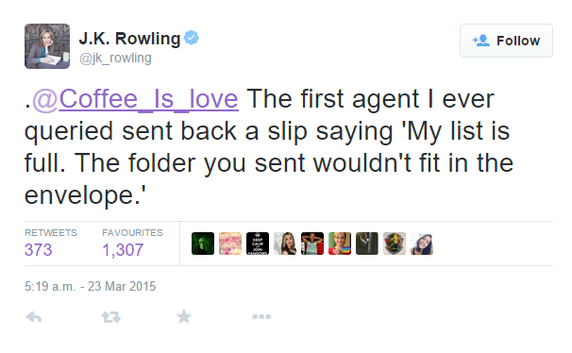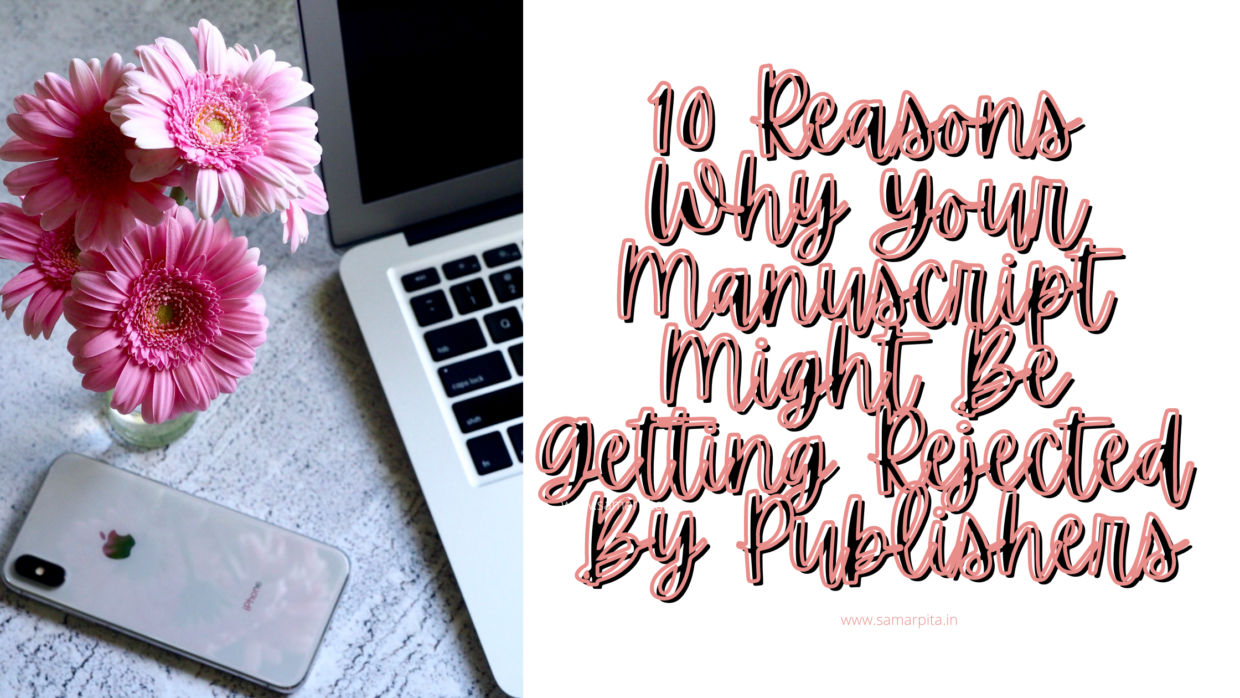It’s been a while that I’ve been editing manuscripts and a lot of debutant authors have come to me with one common woe. Their (unedited) manuscripts are getting rejected. While I am not a literary agent, I do have the experience of handling manuscripts and making them what publishers desire. While talking to some friends who are voracious readers, we came to the topic – how do publishers decide which manuscripts have potential and which ones don’t. To be honest, only a publisher can tell you what will work but I have come up with a list of ten things which just won’t work, after a lot of research. There might be more reasons and the reason your manuscript was rejected might not be one of these, nevertheless, this post is an attempt to throw some light on what might be the reasons.
Your manuscript was unedited
Imagine this. The first draft of your manuscript is complete and you shoot mails to publishers with a cover letter and the first three chapters. And then, you wait. Chances are, you either don’t hear back from anyone, or if you do, it is a rejection. Does this mean you are a bad writer? While there is a tiny probablity of that being true, I’ll take a random guess and say – no. What went wrong was that you sent a rough draft, without waiting to first polish it. How can you avoid this? Firstly, by being patient. Walk away from the first draft. After a couple of days, come back to it. Read it and make changes as you progress. Do the first round of edit yourself. Hiring an editor is a good idea.
Your manuscript doesn’t seem honest.
Go back to your manuscript and ask yourself honestly – was this a sincere effort to pen down a story you had, or did you write something because it is in trend? Did you ape someone – in style of writing or in the plot of the story? Remember, publishers will invest in you only if they are convinced your book will bring them revenue. Is your manuscript original and honest enough to deliver that?

Your cover letter spoke more about you than about your story.
Well! Unless who you are and what you do can send the book on re-print just during pre-orders, your credentials are not important. Of course, you have to write about yourself, like about your previous books (if any) and other accomplishments solely related to previously published books. Apart from that, let your story do the talking. Talk about the product you want the publisher to sell, let that be the only focus in your cover letter.
Your cover letter had errors.
Like your manuscript, your cover letter should be error free too! Take help if needed, but do ensure that the language in your query or cover letter is impeccable.
Your manuscript had unprofessional typesetting.
Do not send your proposal/query letter/manuscript in fancy fonts. These are professional documents and need to look like it. To stay safe use one of these permissible fonts – Times New Roman, Tahoma, Verdana, Georgia, Palatino, Franklin Gothic, Book Antiqua, Bookman Old Style, keep the size to 12, double space the lines and use black letters on white background.
You’ve praised your manuscript too much.
While you do need to present your manuscript as a sellable proposition, it is not a good idea to boast about it. Do not include in your query letter how everyone who has read it so far has loved it and how you are sure the book will be the biggest hit of the decade. Don’t sound over-confident and/or cocky.
Your manuscript reads like documentary.
Fiction or non-fiction, your manuscript has to have a structure. If the actual story/point of focus comes after hundred pages, the book becomes automatically unsellable. Your reader will not keep patience till the tenth chapter or till after a hundred pages. Make sure you have spun the plot well and carefully.
Your manuscript is not suitable for the publisher’s reader base.
If you have sent a chiclit to a publisher who deals mainly with mystery/thriller genre, the manuscript is bound to be rejected. Do know that this need not be counted as a rejection, your manuscript and the context of the story was sent to the wrong address! Do your research well and shortlist publishers who publish books similar to the kind of story you have written. It is advisable to send the manuscript to those who would be at least remotely interested in the topic of the manuscript.
Your manuscript has too many characters.
In short, one glance at the manuscript and the publisher is confused about the story and how it will progress. And that means, the reader would be confused too. At times, authors, specially debutant authors are so absorbed in the ambition to write a best-seller, that they stretch the plot too much. Avoid doing this.
The language in your manuscript is pretentious.
I have said this to almost all my clients – the key to writing a good story is to write in the words most people would understand. Whichever the language you are writing in, use simple and clear language. Do not sit with the dictionary if your aim is to find the toughest synonym. Remember, that even if there are ten synonyms to a word, all their usage would not be the same.
For assitance with manuscript editing or promoting your book online, get in touch at editor@samarpita.in
You might want to read my ebook for writing newbies where I have helped with the basics of writing, editing, and promoting on Write. Edit. Promote. by clicking on the links below:

